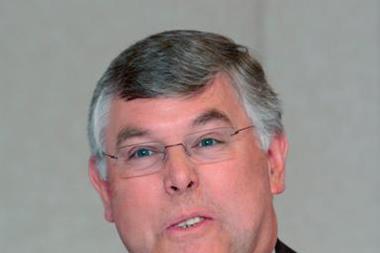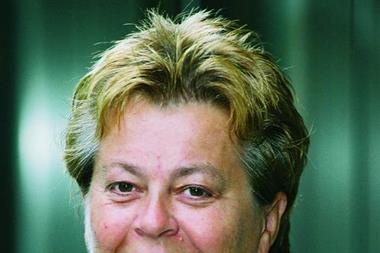Sue Copeman interviews AIRMIC’s next chairman, Paul Howard
What do you see as the greatest challenges in your forthcoming year as chairman? And what’s your theme for the year?
The greatest challenge has to be related to the unprecedented period of economic uncertainty in which we find ourselves where a lot of the existing thoughts and ways of working that people had are inevitably having to change.
My theme for the year is ‘risk management influencing outcomes’. I feel this involves two areas. First, I believe there’s never been a better time to be a member of AIRMIC, primarily because of the networking opportunities that it gives you and the opportunity to share and check out your views with others. By discussing things with your peers, comparing and discussing strategies, you will get better quality results whatever the level of uncertainty. There’s a lot we can pick up from other people.
Second, risk managers, even if their own business is weathering the recession, will have to interact with a number of different suppliers who may themselves be experiencing various issues so it is equally important that we work with them for the mutual benefit of our respective organisations. At a time when resources are even scarcer, risk managers are going to have to be much smarter in the solutions we offer and really review the cost benefit of any situation. These are key ways in which we can ‘influence outcomes’.
How can risk managers communicate to the board? And how can we promote the importance of the risk manager’s role?
Obviously it will vary from organisation to organisation. I think there has never been a better time for risk managers to step up to the challenge. But we must be proactive rather than sitting back and expecting that people are going to come to us. And this means actively demonstrating how you and risk management can make a difference. There were a lot of the things that we started in AIRMIC in Julia’s year as chairman, such as the AIRMIC Academy. They’ve started to work really well and I think that this year we’ll be looking to extend them with a slightly different focus. If this year’s focus has been on technical skills, in the next year we’ll also be focusing on some of the softer skills, such as those relating to influencing strategies. One of the things that I’m really keen to do is to get an actual board member along to one of our sessions so that we can talk to them about the best ways to influence the board and what type of issues, as a board member, they want to hear about.
If they want to promote their role, risk managers need to step out from the traditional view of their role - buying insurance and/or running health and safety schemes. As important as those things are, risk managers have to recognise that they are senior managers within their organisations and be prepared to play an appropriate leadership role within those organisations.
Do you think there’s a place for corporate risk officers in the UK?
I think that the risk management role probably resembles that of an internal consultant. It’s about really making sure that risk is considered and embedded within the usual decision making processes within the organisation. Ultimately, the chief risk officer is the CEO. If risk is embedded in the organisation then it should be integral to all decisions. I don’t think your title matters that much.
Where would you like to see AIRMIC positioned in five years time?
I’d like to see it build on its existing strengths. It has a good position within its traditional marketplace. I would like to see it continue to expand beyond that to be the first choice for risk management views and leadership in the UK for the media, other professions and our political institutions.
It is important for AIRMIC, particularly in the current difficult times, to have a distinct voice that it can use to represent the feelings and views of its members. If there are key issues our members should expect AIRMIC to represent them in that particular situation.
What new things is AIRMIC pioneering?
We are launching some new research and strategies at this conference. I’d like to particularly stress two examples.
“
At a time when resources are even scarcer, risk managers are going to have to be much smarter in the solutions we offer and really review the cost benefit of any situation.
Last year we launched our research on enterprise risk management (ERM) and said that would be the first in a series of work on important areas. This year we will be launching some research on risk appetite that we’ve worked on jointly with Marsh and Nottingham University. I believe that we need to be an important contributor to debate on such key subjects. Our research is not going to be the first or last word on such subjects as ERM or risk appetite but it gets people debating those subjects and that can stimulate further research and discussion in those particular areas.
We are also launching a career template, giving would-be or existing risk managers an idea of how their careers can develop and the skills that they are likely to need in progressing their careers in their chosen directions.
What we’re doing in both these areas is not prescriptive but it does provide something that individuals can look at, relate to their own circumstances and hopefully use to develop their approach.
We have got a number of members who, unfortunately in the current economic circumstances, are now between jobs. AIRMIC allows such individuals to have a ‘reserve’ status so that they can continue to be a member of the association and attend relevant meetings and events. This means that they can keep abreast of current issues that are relevant to their future careers.
Another issue that we’ve recently tried to help members with is the value identification for a risk management department. We are aware that organisations are focusing on what’s going on in their business and trying to rationalise down in some areas. So they want to know what value you add to the organisation, and we believe that we’re providing some valuable pointers here – as well as enabling members to keep their skills up to date.
What are you looking forward to most in your year as chairman? And what are you looking forward to least?
I’m really looking forward to meeting a lot more members - particularly those outside London. I will be having a series of ‘what’s on your mind?’ sessions around the country to catch up with some of our members and see what is important for them at present. Working as I do for an organisation that has got locations all around the country means it’s quite easy for me to combine that with my day job.
Obviously too, I’m looking forward to working with the other members of the council and the secretariat in pushing forward the next stages of strategy. I feel that the work that Paul Hopkin is doing on the technical side and the influence and activities of John Hurrell, our now not so new chief executive, are really helping to advance AIRMIC’s profile.
One of the other great things about being chairman of AIRMIC is that it’s a superb opportunity. Effectively, you are the chairman of a small business for a year. This can help anyone who might be considering taking on non-executive posts in their future - it’s really a good development for that.
I’m really looking forward too to introducing something which I believe is very important. In my year, I want to have a chairman’s charity. I know that many members are involved in their own charitable initiatives but I think that, as an organisation, we can also do something . So there will be a number of events to raise money for charity and I hope we can make a meaningful contribution.
As far as things I’m not looking forward to are concerned, I think these fall into the area of ‘unknown unknowns’. I’m sure that my year as chairman is going to produce some things that I’m not expecting – key major events where AIRMIC will be asked to contribute and have an opinion. That’s something you cannot necessarily plan for.
What are your personal interests?
Very sadly I am about to enter my 41st year as a Leyton Orient season ticket holder, as always dreaming that this year will be our year. I am a keen runner – I have just done my seventh marathon. I am a cycle commuter – I cycle to my office in Holborn from Chingford and back, and I’m keen on walking, most recently in the Alps and the Lake District. I also like to travel and am a keen scuba diver.
Paul Howard is the next chairman of AIRMIC and head of group insurance and risk management, J Sainsbury plc
Downloads
AIRMIC Day 1
PDF, Size 1.11 mbAIRMIC Day 2
PDF, Size 2.01 mb















